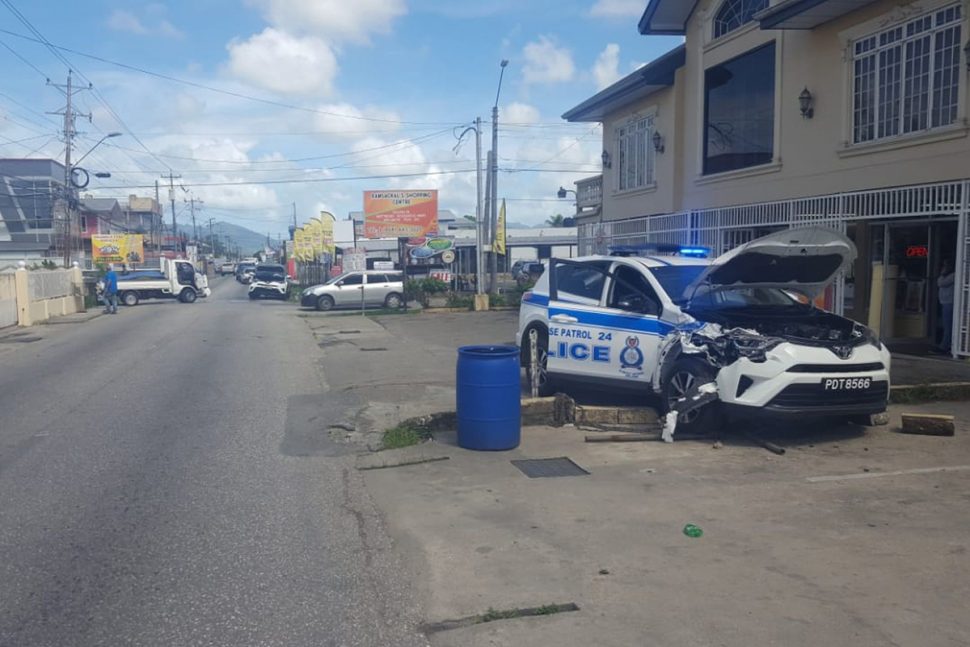(Trinidad Guardian) Two police officers involved in a vehicular accident in Central Trinidad yesterday will no longer be allowed to drive whilst on duty.
The officers, who are members of the recently launched Emergency Response Unit, were each driving brand new SUVs when they were involved in a vehicular accident with a panel van along the Southern Main Road in Chin Chin, Cunupia.
However, a senior police source told Guardian Media last evening that Commissioner of Police Gary Griffith ordered that the officers be debarred from driving while on duty in future after it was determined that were involved in reckless driving along the roadway.
The senior officer said through the new GPS system in the vehicles they were able to ascertain that both drivers were going at a speed of 90 km/h on the main road and prior to the crash were also travelling on the highway at a speed of 145 km/h. The drivers we reportedly also not even responding to a trouble call at the time but returning to their respective stations after collecting a police vehicle which had been sent for maintenance.
Guardian Media understands this is the first time such disciplinary action will be taken for such an offence in the T&T Police Service.
Guardian Media contacted Griffith for comment on the matter last evening, but he did not want to comment on the specific issue as there still needs to be an investigation. However, said his concern about yesterday’s incident was that such reckless driving could also have led to the loss of life.
Griffith added that he is now monitoring all police vehicles through the new GPS system. He also said distress calls will be graded based on the threat, which will now dictate how quickly officers should drive to respond to an incident. He said this will be to ensure that police resources are not abused.
Contacted yesterday on the decision, Police Service Social and Welfare Association president, Inspector Micheal Seales, said he supports the disciplinary action, saying police officers should not be breaking the law to enforce the law.
“Even if you’re rushing to any call for service and if it is, in fact, an emergency you must obey the speed limit and that is why even in a high-speed chase we encourage officers to use their radios, the radios are faster than the cars.”
Seales said there were also past court matters which show that although the protective services are responding to an emergency they cannot break the law. He cited a former case where the driver of a fire tender ignored a stop sign and collided with a vehicle, killing someone. He said the court still found the fireman culpable for manslaughter.
Seales admitted that what Griffith was now doing is enforcing principles that are already there, which is a change from what was happening before.
“He (the commissioner) made it distinctly clear that in order to preserve the resources you have to do what is right. It’s only when you go into high-speed chases, that now takes you into the realm of recklessness, that does not make sense.”










